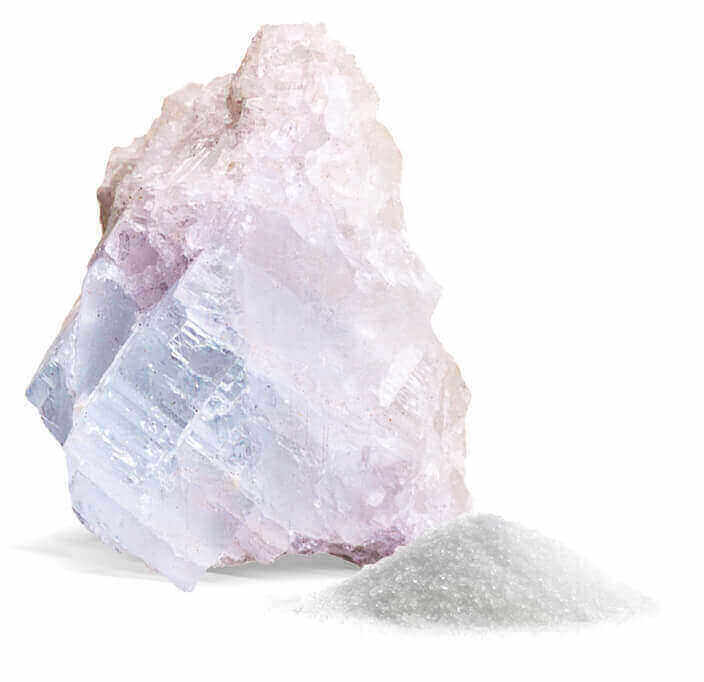Magnesium
An important mineral

The essential mineral performs numerous tasks in the body and is a decisive cofactor in hundreds of metabolic reactions. It is therefore an extremely important substance for the body and a deficiency can lead to a wide variety of problems
Functions of magnesium
One of the most important functions of magnesium is its involvement in energy production. This is why a deficiency often results in fatigue and reduced performance. Many people, especially those who are active in sports, will know that magnesium relaxes the muscles or is involved in muscle function. Accordingly, recurring muscle cramps can indicate a deficiency and can also be treated well with it. But cardiac arrhythmias can also be the result of a magnesium deficiency. It also relaxes the muscles of the blood vessel walls and therefore has a beneficial effect on the entire cardiovascular system. It also has an anti-inflammatory effect and thus supports the immune system in its fight against infections. It is important for brain and nerve function, supports the body’s own detoxification and is involved in bone and tooth formation. These are just some of the functions the mineral is involved in in some form!
Approved healthclaims of magnesium
- It contributes to the reduction of tiredness and fatigue
- It contributes to normal functioning of the nervous system
- It contributes to normal mental function
- It contributes to normal muscle function
- It contributes to the maintenance of normal bones
- It contributes to the maintenance of normal teeth
- It has a function in cell division
- It contributes to electrolyte balance
- It contributes to normal energy metabolism

Magnesium is actually found in many different foods, especially plant foods. Typical sources of magnesium include cocoa, various seeds and nuts, as well as certain whole grains and pseudo-cereals. Nevertheless, many people in our latitudes are deficient
If you decide to supplement your magnesium intake, you should pay attention to the composition of the magnesium salts. Magnesium exists in the form of various salts. These differ in terms of bioavailability and the proportion of elemental magnesium. Some magnesium salts are less well absorbed by the body or are more likely to cause digestive problems, such as diarrhoea. It is best to take a mixture of organic and inorganic magnesium salts, such as magnesium taurate, chloride, malate and carbonate.